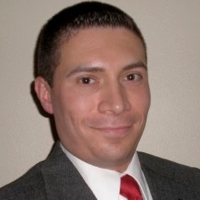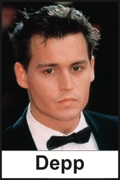Rascals case in brief
In the beginning, in 1989, more than 90 children at the Little Rascals Day Care Center in Edenton, North Carolina, accused a total of 20 adults with 429 instances of sexual abuse over a three-year period. It may have all begun with one parent’s complaint about punishment given her child.
Among the alleged perpetrators: the sheriff and mayor. But prosecutors would charge only Robin Byrum, Darlene Harris, Elizabeth “Betsy” Kelly, Robert “Bob” Kelly, Willard Scott Privott, Shelley Stone and Dawn Wilson – the Edenton 7.
Along with sodomy and beatings, allegations included a baby killed with a handgun, a child being hung upside down from a tree and being set on fire and countless other fantastic incidents involving spaceships, hot air balloons, pirate ships and trained sharks.
By the time prosecutors dropped the last charges in 1997, Little Rascals had become North Carolina’s longest and most costly criminal trial. Prosecutors kept defendants jailed in hopes at least one would turn against their supposed co-conspirators. Remarkably, none did. Another shameful record: Five defendants had to wait longer to face their accusers in court than anyone else in North Carolina history.
Between 1991 and 1997, Ofra Bikel produced three extraordinary episodes on the Little Rascals case for the PBS series “Frontline.” Although “Innocence Lost” did not deter prosecutors, it exposed their tactics and fostered nationwide skepticism and dismay.
With each passing year, the absurdity of the Little Rascals charges has become more obvious. But no admission of error has ever come from prosecutors, police, interviewers or parents. This site is devoted to the issues raised by this case.
On Facebook
Click for earlier Facebook posts archived on this site
Click to go to
Today’s random selection from the Little Rascals Day Care archives….
Click for earlier Facebook posts archived on this site
Click to go to
Today’s random selection from the Little Rascals Day Care archives….
Assistant attorney general complains: ‘Innocence is in vogue now’

linkedin.com
Jess Mekeel
Aug. 11, 2016
“[North Carolina] Assistant Attorney General Jess Mekeel said [Johnny] Small’s motion should be dismissed.
“ ‘Innocence is in vogue now,’ he told the judge, the Associated Press reported.
“Exonerations are certainly on the rise. Last year, about 150 people were exonerated, a record number, according to the National Registry of Exonerations….
“Mekeel [said] he considers reopening cases based on recanted testimony to be a threat to the American legal system.
“ ‘This is an attempt to retry a 28-year-old case. Twelve jurors made that determination already. They heard the evidence. They concluded the defendant was guilty,’ Mekeel said, according to WRAL. ‘They jeopardize the stability and reliability of our justice system.’ ”
– From “Man spent 28 years in prison after his friend accused him of murder. Now, the friend said he lied” by Travis M. Andrews in the Washington Post (Aug. 9)
“Innocence is in vogue now” – what a revealing glimpse of the inner prosecutor! As if exonerations were a fad, an unwarranted threat to “the stability and reliability of our justice system.”
Is it any wonder that district attorneys such as Jon David so eagerly pursue innocence advocates such as Chris Mumma?
![]()
Edenton Seven could’ve used a Johnny Depp
 Sept. 10, 2012
Sept. 10, 2012
“You saw those initial documentaries, you make a choice: Am I going to watch the thing and go ‘Wow, that’s really horrible,’ and go out and get a milkshake?”
– Johnny Depp, tracing the roots of his advocacy for the West Memphis Three
That could be me talking – except that the eye-opening documentaries for me were “Innocence Lost” rather than “Paradise Lost,” that I’m a retired newspaperman rather than a Hollywood actor and – most crucial – that I went out for a figurative two-decade milkshake run rather than responding immediately to the outrage I was seeing on screen. Hats off to WM3 advocates such as Depp, who moved quickly to challenge prosecutors every bit as recalcitrant as those in North Carolina.
Immunity of office allows zeal, recklessness to go unchecked

longform.org
Ariel Levy
June 29, 2016
“Compensation is intended in part as a deterrent: a municipality that has to pay heavily for police or prosecutorial misconduct ought to be less likely to allow it to happen again. But it is taxpayers, not police or prosecutors, who bear the costs of litigation and compensation. Prosecutors enjoy almost total immunity in cases of misconduct, even if they deliberately withhold exculpatory evidence from a jury. A 2011 Supreme Court ruling also made it virtually impossible to sue a prosecutor’s office for such violations….”
– From “The Price of a Life: What’s the right way to compensate someone for decades of lost freedom?” by Ariel Levy in the New Yorker (April 13, 2015)
To “deliberately withhold exculpatory evidence” seems all too neatly illustrated in Bob Kelly’s trial. Here’s how the North Carolina Court of Appeals described the prosecution’s actions:
“Judge L. Bradford Tillery, a pretrial Judge, directed the State to file and present for in camera review identifying information, medical and psychotherapeutic files and DSS files with respect to the ‘indictment children’….
“In apparent compliance with Judge Tillery’s order… the State turned over a box of files to the trial court, Judge (Marsh) McLelland presiding. The box contained, inter alia, complete medical notes and therapy notes on the 29 indictment children, 12 of whom testified at defendant’s trial and 17 of whom did not….
“After trial, defendant’s appellate counsel went to the Office of the Clerk of Court for Pitt County to view the exhibits. He opened several boxes containing trial exhibits, none of which were sealed. One of the boxes contained 29 files labeled with the names of the indictment children…. Defendant argues that the files contained undisclosed information that would have been material to the defense.”
To wit, the withheld files were bulging with exculpation – conflicting claims, evidence of hysteria, eyewitness testimony that nothing happened.
Prosecutors H.P. Williams Jr., Bill Hart and Nancy Lamb walked away rebuked by the Appeals Court but otherwise unpenalized. How differently might the Little Rascals case have unfolded had they known their recklessness wouldn’t be shielded by prosecutorial immunity?
![]()
‘Understanding and Assessing’ ritual-abuse mythology
May 28, 2012
How would Bruce A. Robinson, founder of the comprehensive and widely respected ReligiousTolerance.org, describe the credibility now given ritual abuse?
“I am unaware of any child psychologist or similar specialist who still believes ritual abuse happened in child care facilities. I think there is a consensus that repeated direct questioning of young children will get them to reveal stories about events that never happened. Over time, these stories often become ‘memories.’ ”
Mr. Robinson, meet Kathleen Coulborn Faller, professor in the School of Social Work at the University of Michigan.
As previously noted, Dr. Faller in “Understanding and Assessing Child Sexual Maltreatment” (second edition, 2003) identifies herself as a true believer. Here’s how she makes her case:
■ “Responses to allegations of ritual abuse have undergone a transformation in the last 10 years, so that any case… elicits great skepticism. In fact, it is no longer au courant to believe in the existence of ritual abuse.”
Au courant? Does she really consider scientific research into children’s testimony to be some kind of fad, like pet rocks?
■ “The vigor of the attack against ritual abuse… reinforces the belief of some professionals, myself included, that there is substance to ritual abuse….”
What!? And where are these other professionals?
■ “Ultimately the backlash… resulted in the reversal of some criminal convictions involving ritual abuse (New Jersey v. Michaels, 1994; North Carolina v. Kelly, 1995)… ”
In fact, these convictions were overthrown not because public and professional opinion had begun to shift, but because their many legal defects were obvious to appeals courts.
● ● ●
I’ve again asked Dr. Faller to respond.











0 CommentsComment on Facebook